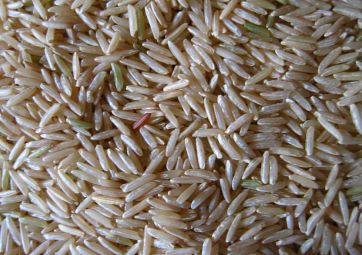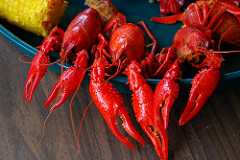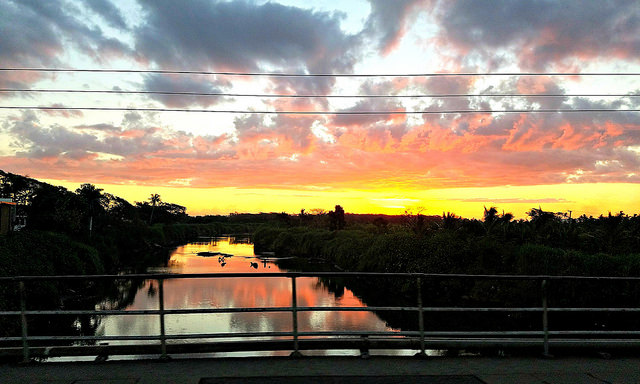I’m traveling to Taiwan next weekend, and was advised to learn a few important words. That’s sound advice for most travelers. Speaking English gets you by at many airports, but knowing some words in your destination’s language can certainly help your travel experience.
My personal favorites: Hello! Please. Yes. No. Thank you! How much? Where is the bathroom?
Besides making it a bit easier to express yourself and be understood, in my experience it also makes a huge difference in how locals perceive you. I have never encountered someone who didn’t smile at my attempt to say something in their language, even if I am obviously struggling.
***
Language is fascinating. It can tell you so much about a person, or a people. From the choice of one word over another, consciously or unconsciously; to the phrases common in certain regions but not others; to even how entire languages omit certain words or concepts… Language is amazing!
An oft-cited example of how language can reflect on culture is how the Eskimos supposedly have a hundred words for snow. While this example is inaccurate in a variety of ways (not least of which is the fact that “Eskimo” is a word that may refer to at least two different groups, each with its own language), the example holds true in that language evolves in ways that matter to its speakers.
In English, rice is simply rice. No matter what state it’s in, it’s just rice. In Tagalog, my other language, rice is referred to in its different forms. Rice as a grass in the field is called palay. Rice milled but uncooked is called bigas. Cooked rice is kanin. Burnt, overcooked rice is tutong, soupy, porridge rice is called lugaw, fried rice is sinangag, and leftover rice is bahaw. That’s 7 distinct words! As you can tell, rice is important to Filipinos.

Uncooked rice, or bigas in Tagalog
There is no word in Tagalog for snow. The Philippines sits just north of the equator. It’s about 80 degrees Fahrenheit year round, dropping to maybe 65 in the colder dry months. And so instead of a Tagalog word for snow, we have niyebe—a version of the Spanish nieve.
***
Language can also reflect on individuals. The US is a great example of how, even in small things, regional differences can pinpoint a person’s history. This linguistic quiz, based on the Harvard Dialect Survey, can give you some interesting insight, even if you’re not American! For instance: do you call it crayfish, crawfish, or crawdad?

Crawfish? Crayfish? Crawdad?
When I first came to the US, I lived in the San Francisco Bay Area. Do you have any idea how hard it is to get hella out of your vocabulary? The City by the Bay is hella awesome, and it gets in your linguistic blood.
On another personal note, studies say people who swear more may be more honest. These people are seen as less concerned with representing themselves in a particular light, or filtering their thoughts to be more socially acceptable. However, cursing is traditionally seen as unprofessional, or as a sign of linguistic incompetence.
I admit it: I swear like a sailor. Frak and shit are a couple of 4-letter favorites. And hey, that’s another thing I picked up from somewhere—frak was the cuss word of choice in the show Battlestar Galactica, which I absolutely love. So anytime I hear someone say it, I know they’re a kindred BSG spirit.
***
I like words in general. One of my favorite words is twilight, though it’s a word I don’t use a lot verbally. It gives me a sense of comfort and yet, at the same time, magic, the last fading red rays of the sun in a darkening sky. I’m saddened by how the recent terrible films have created an association with the word, though. Dusk, while having a similar meaning, evokes more of a melancholy feel, of muffled sounds and hushed voices.

What I think of when I hear the word “twilight”… except darker
Moist is a very unpopular word. I personally prefer damp or clammy. Moist evokes a certain uncomfortable squishiness, even squelchiness. Researchers from Oberlin College in Ohio and Trinity University in San Antonio found that many people dislike the word because of associations with bodily functions.
Associations are a huge part of language. Certain words evoke senses, feelings, or memories. The word synapse takes me back to a time in college when I took a Psychology 101 class and we discussed how love is a product of chemicals. Strasse, German for street, always brings a smile to my face because of an instance in Switzerland when it took 3 days for David to figure out the meaning of the word despite seeing it on every street sign and train stop. Fractal makes me think of beautiful patterns and images, and of how amazed I am that someone was able to use it as a song lyric in a Disney movie.
***
I could go on about words. But I think it’s time for me to stop woolgathering and go back to my Mandarin. (Incidentally, check out this article on the history of the term woolgathering.)
How about you, what are your favorite words, and why?



Yesterday I was obsessed with saying “banal” out loud 🙂
LikeLiked by 1 person
Funny thing… “banal” in Tagalog means “holy”! Exact same spelling. Words are fun 😄
LikeLike